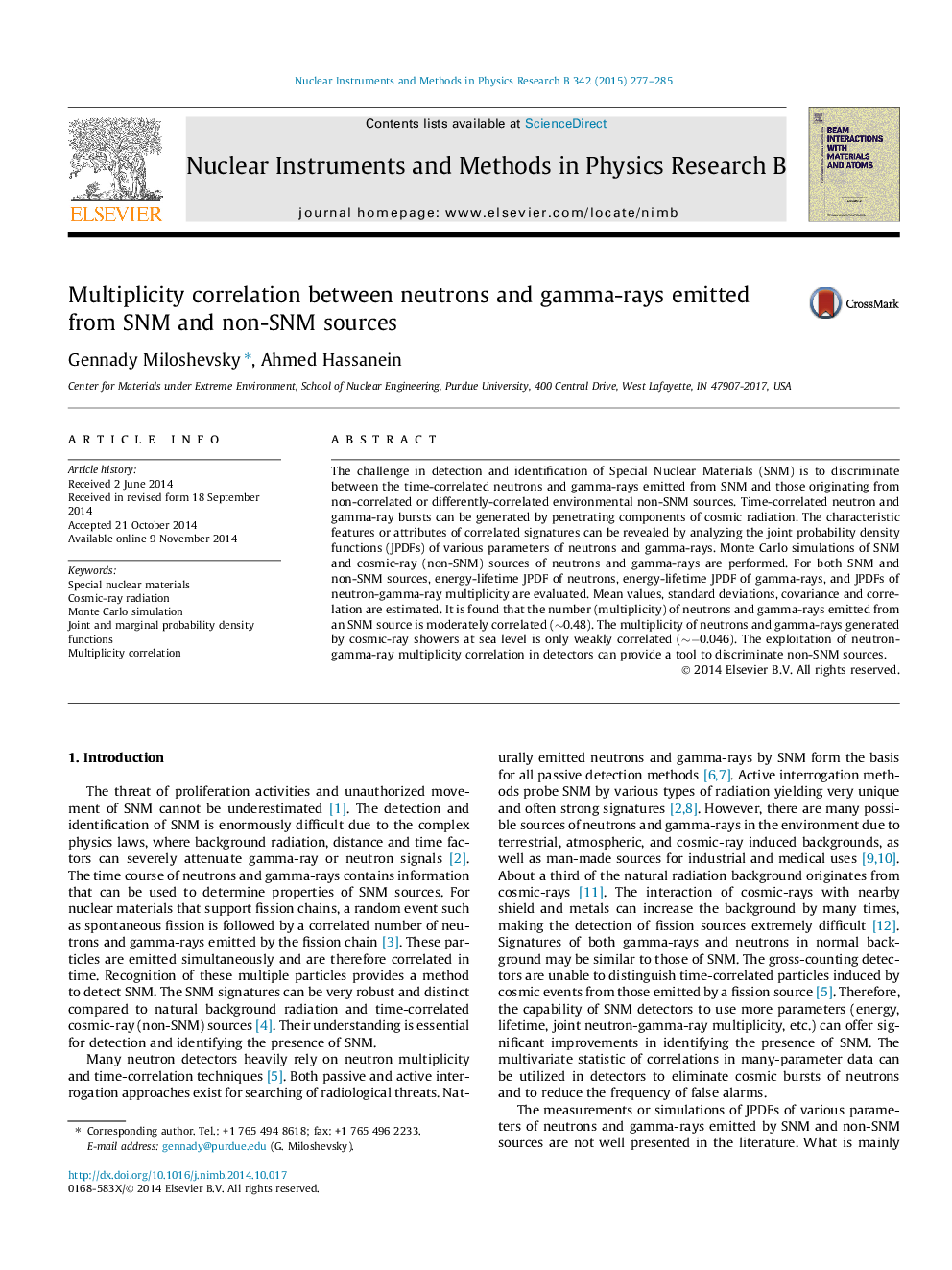| Article ID | Journal | Published Year | Pages | File Type |
|---|---|---|---|---|
| 1680600 | Nuclear Instruments and Methods in Physics Research Section B: Beam Interactions with Materials and Atoms | 2015 | 9 Pages |
Abstract
The challenge in detection and identification of Special Nuclear Materials (SNM) is to discriminate between the time-correlated neutrons and gamma-rays emitted from SNM and those originating from non-correlated or differently-correlated environmental non-SNM sources. Time-correlated neutron and gamma-ray bursts can be generated by penetrating components of cosmic radiation. The characteristic features or attributes of correlated signatures can be revealed by analyzing the joint probability density functions (JPDFs) of various parameters of neutrons and gamma-rays. Monte Carlo simulations of SNM and cosmic-ray (non-SNM) sources of neutrons and gamma-rays are performed. For both SNM and non-SNM sources, energy-lifetime JPDF of neutrons, energy-lifetime JPDF of gamma-rays, and JPDFs of neutron-gamma-ray multiplicity are evaluated. Mean values, standard deviations, covariance and correlation are estimated. It is found that the number (multiplicity) of neutrons and gamma-rays emitted from an SNM source is moderately correlated (â¼0.48). The multiplicity of neutrons and gamma-rays generated by cosmic-ray showers at sea level is only weakly correlated (â¼â0.046). The exploitation of neutron-gamma-ray multiplicity correlation in detectors can provide a tool to discriminate non-SNM sources.
Related Topics
Physical Sciences and Engineering
Materials Science
Surfaces, Coatings and Films
Authors
Gennady Miloshevsky, Ahmed Hassanein,
